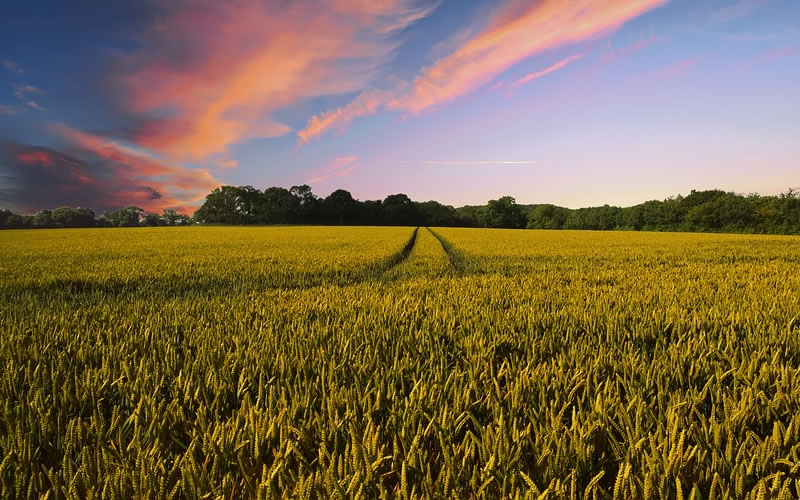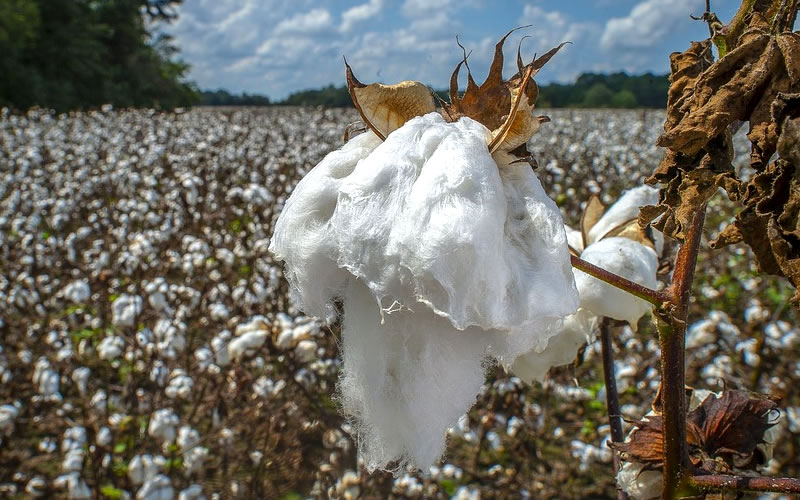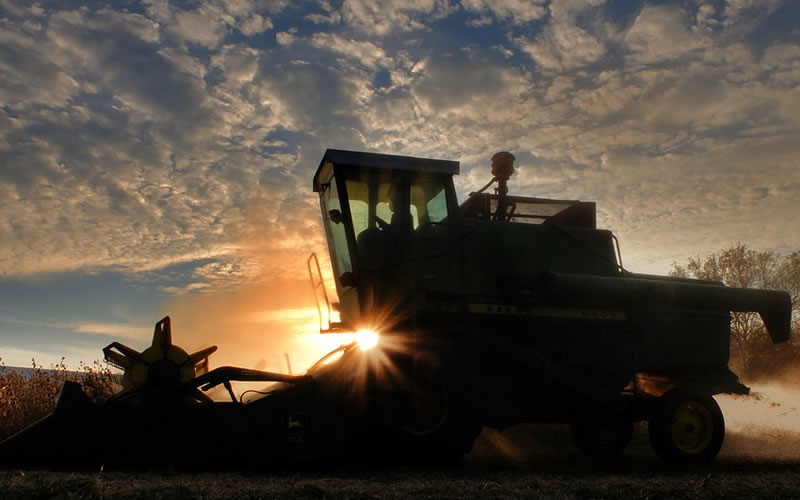
By Lindsay Street, Statehouse correspondent | If years of crop losses weren’t enough to break S.C. farmers, the ongoing trade war with China just might.
“Farmers are optimistic by nature. It takes a lot to really get us because we’re accustomed to bad weather,” longtime Newberry farmer John Long told Statehouse Report this week. “What we’re experiencing now is self-inflicted, and it’s really discouraging. I hear more farmers grumbling now than I think I ever heard.”
That self-inflicted pain is two-fold: a hold-up of governmental disaster relief funds from last year’s flooded fields, and the crash of commodity grain prices linked to the escalating trade war with China.
The American Farm Bureau reported recently that farming bankruptcies for the 12 months leading up to June 2019 were up 13 percent from the previous year. Six farming bankruptcies were reported in South Carolina — twice as many as the previous year.
“That’s the writing on the wall of what we’re going to be looking at if we don’t continue to get some relief from the federal government and this trade war doesn’t get resolved,” Long said.
The S.C. Farm Bureau, a state affiliate of the American Farm Bureau that advocates for farmers, is monitoring the pain in the state.
“The farm economy is awful,” media liaison Stephanie Sox said this week. She said it’s a national issue that’s been brought home to South Carolina.

State Rep. Russell Ott, D-Calhoun, is a generational farmer like Long. Ott, whose father Harry is a former House leader who now heads the state farm bureau, said he’s worried about keeping farms like his in business.
“I’m not going to paint a rosy picture just to paint a rosy picture. There are generational farmers who are on the brink of losing their farms,” he told Statehouse Report. “It’s costing more to grow the crops that you can get for the crops at the end of the year and that business model will not be sustaining.”
S.C. House Agriculture, Natural Resources and Environmental Affairs Chair David Hiott, R-Pickens, said he will let the S.C. Department of Agriculture take the lead on pushing for any needed policies or measures to help the state’s farmers. So far, he said, he hasn’t heard anything.
Disaster money stalled

In 2018, many coastal farmers — the farmers who tend to grow large swaths of commodity crops like corn and cotton — suffered a third straight year from tropical storm damage. Last year’s losses were pegged at $205 million.
As Congress tinkered with a disaster package, state lawmakers passed their own, with the caveat that the $25 million would not be allocated if Congress approved a federal bill. That $19.1 billion package passed in June.
But neither state nor federal money has reached farmers yet as bills pile up.
“There’s farmers out there unable to pay bills,” Ott said. “It’s time that we as a state stop waiting around on the federal government, we need to do what we need to do to help our farmers.”
Ott fingered Agriculture Commission Hugh Weathers for not dispersing the state funds. But Weathers’ department Communications Director Eva Moore said there isn’t any state money to release because the federal aid was approved, per the law passed by the state legislature.
Moore said commission expects farmers will be able to apply for federal aid beginning in October. Again.
The trade war continues

There are 24,600 farmers operating on 4.8 million acres of farmland in South Carolina, according to federal data. The three largest crops affected by the tariffs — corn, soybeans and cotton — account for more than 1.3 million acres in the state and for about a half billion dollars of what’s grown in the Palmetto State.
“Cotton and soybeans are the two crops we are really below water on, below profitable levels so obviously we can’t keep doing that,” Long said. “If the prices don’t recover, we’re losing money with every acre that we plant.”
He said most farmers will make 2020 planting decisions around Thanksgiving, and those plans will have to factor in the yearlong trade war.
In June 2018, President Donald Trump began pressuring China on its prices and alleged currency manipulation. He announced a first round of tariffs — taxes imposed on goods being imported from the country into the United States. In retaliation, China imposed its own tax on U.S. goods, and stopped buying grains from America’s farmers.
Most recently, Trump announced a 10 percent tariff on the remaining $300 billion of Chinese imports into the country. The tax is set to begin during Labor Day weekend. This week, U.S. Sen. Lindsey Graham, R-S.C., said he expected the trade war with China to “drag on.”
Here’s what happens — and is happening now — when China stops buying corn, soybeans and other commodities grown in South Carolina and the United States: prices drop in accordance with the principles of supply and demand — too much supply and too little demand. Cotton is worth half as much as in August 2018, some farmers reported.
- DIG DEEPER: Farmers aren’t alone in feeling the pinch of the trade war. In a new poll by the state Chamber of Commerce, two-thirds of respondents said tariffs were hurting South Carolina.
In an effort to help farmers who have lost sales, federal lawmakers passed a $28 billion aid package. So far, $8.6 billion has been distributed by the end of June. But it’s half a bandage because disaster aid still lingers.
Ott likened the lost-sales aid package to throwing $5 in a field and getting $1 in return.
Long said the assistance has helped, but he thinks the allocation of funds needs to be addressed. The money is allotted by a per acre of specific crop basis, but the amount allocated varies by county. For example, in South Carolina, Laurens County farmers received $24 per acre of crop, and Hampton County farmers received $103 per acre of crop.
“The president has given us some money to help offset these tariffs and we have some suggestions that we’re going to be making in how to do that in a fairer manner,” he said. He works on a committee with the S.C. Farm Bureau that helps recommend policies.
Another long-term implication
Here’s what also happens when China backs out of the U.S. market: China continues to buy the same amount of commodity crops, but now from different countries like Brazil and Australia. And some farmers now fear that those new trade agreements may survive long after the trade war has ended.
“Agriculture is global and we worry that we’ve lost these trading partners with China because Brazil is not wasting any time in picking it up,” Sox said.
In the 1990s, Long was president of a national soybean group that worked to remove soybean tariffs with China.
“We worked hard to get China into the (World Trade Organization) and we wanted to get rid of their tariffs,” he said. “Now, they are not buying any.”
- Have a comment? Send to: feedback@statehousereport.com



Trump destroys American soybean farmers and indirectly the environment as Brazil’s farmers burn the Amazon forest to make more room to grow soybeans to sell to the Chinese.